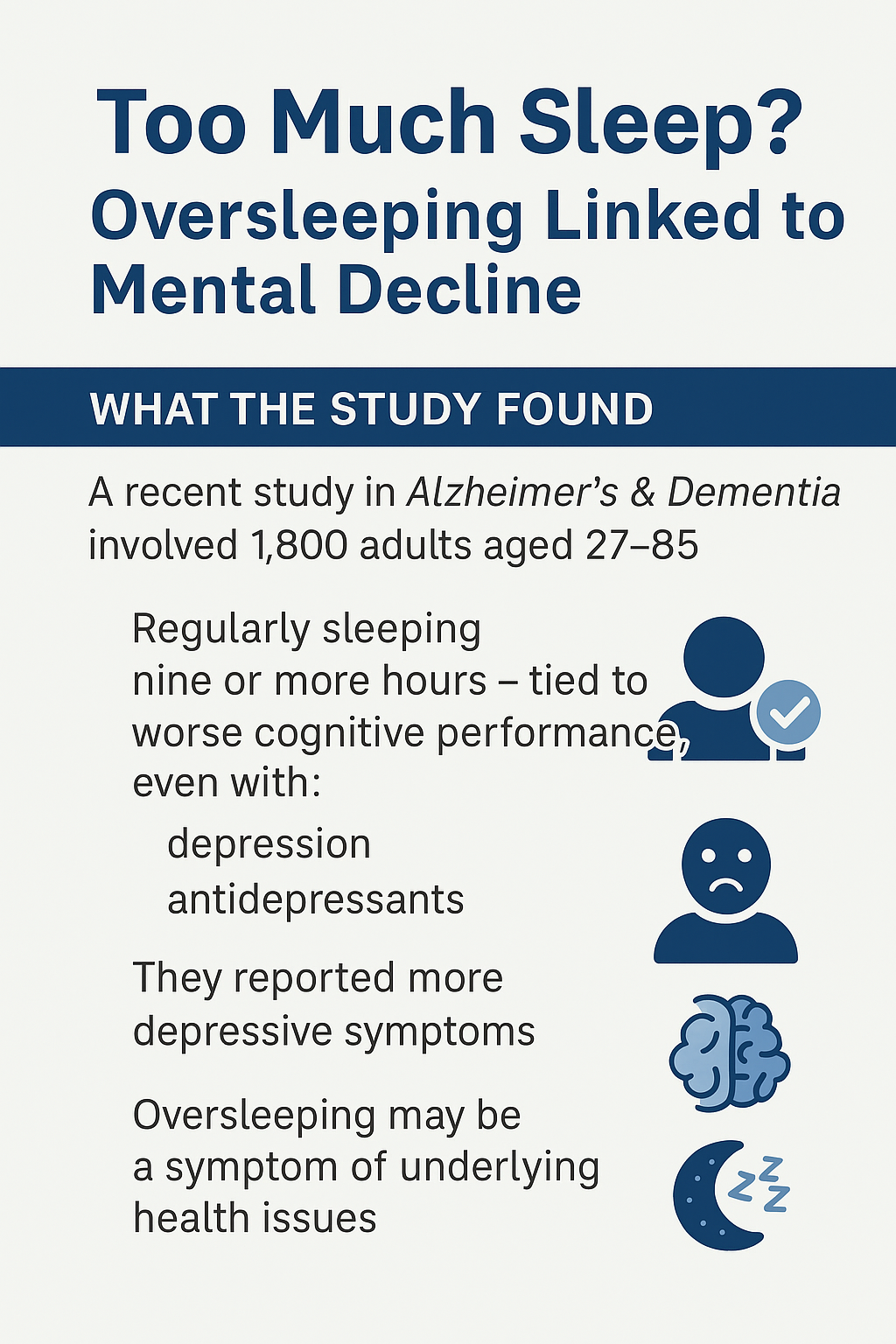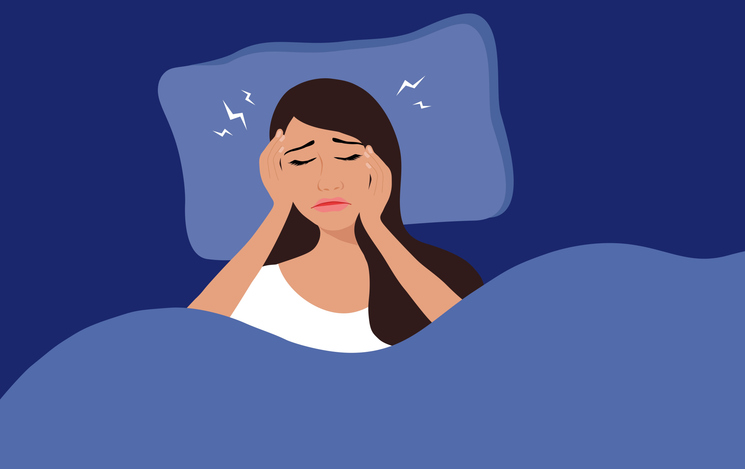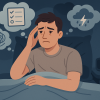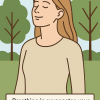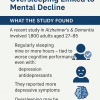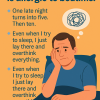Why Too Much Sleep Could Be Warning Your Brain
Too Much Sleep? The New Brain Health Warning—and What You Can Do About It
Is it possible to get too much sleep? A surprising new study says yes—and the implications for your brain and mental health are serious.
🧠 What the Study Found: Oversleeping and Mental Decline
A recent study published in Alzheimer’s & Dementia (May 2025) rocked the sleep science world by revealing that regularly sleeping nine or more hours is associated with worse cognitive performance, especially in people with depression—even if they’re on antidepressants.
This wasn’t a small sample either. Researchers looked at over 1,800 adults aged 27–85 from the Framingham Heart Study. The data showed that “long sleepers”:
- Performed worse on cognitive tests,
- Were more likely to report symptoms of depression,
- And potentially faced a greater risk of long-term cognitive decline.
Vanessa Young, lead author, suggests that sleeping too much might be a red flag—a symptom, not a cure:
“Unusually long sleep might be worth paying attention to, especially if it's a change from your normal routine”.
📉 What Might Be Happening in the Brain?
Oversleeping may reflect underlying health issues like:
- Brain inflammation,
- Vascular problems,
- Depression-driven behavioral withdrawal,
- Or even early signs of neurodegeneration.
The NIH’s Your Guide to Healthy Sleep also underscores that sleep is not just a rest state—it’s when your brain forms memories, cleans out toxins, and reboots emotional regulation systems. But when sleep goes beyond the normal range, it may disrupt—not help—those systems.
😴 But Isn’t More Sleep Better? Not Always.
The relationship between sleep and health follows a J-shaped curve—too little and too much sleep are both risky. Dr. Christopher Winter, neurologist and sleep researcher, explains that the sweet spot is around 7 hours per night for most adults.
True restorative sleep means:
- Falling asleep within 30 minutes,
- Sleeping 7–9 hours,
- Waking up refreshed, not groggy.
🛑 Oversleeping ≠ Restoring. It Could Signal...
❌ Emotional withdrawal from depression
❌ Side effects from sedating medications
❌ Unregulated circadian rhythms
❌ Disrupted sleep quality (e.g., light sleep or untreated apnea)
✅ What You Can Do Instead: Precision Sleep Rehab with CBT-I
Cognitive Behavioral Therapy for Insomnia (CBT-I) helps reset your brain’s sleep system, not by sedating it—but by strengthening your natural rhythms.
CBT-I works by:
🔹 Setting a fixed wake time to stabilize your circadian clock
🔹 Compressing time in bed to increase sleep drive and deepen sleep
🔹 Rewiring anxious or depressive sleep thoughts with behavioral activation
🔹 Reducing rumination and emotional overload through mindfulness, defusion, and ACT strategies
🌟 Try MySleepPlan: A Digital Path to Better, Balanced Sleep
Our self-guided sleep platform, MySleepPlan, empowers you to:
- Track your true sleep need (vs. perceived fatigue),
- Learn why more time in bed can make you feel worse,
- And reclaim high-quality rest—without depending on pills or oversleeping.
🧪 It's built on evidence-based CBT-I methods backed by military, NIH, and VA research.
🎯 Bottom Line:
Sleep isn’t just about clocking hours—it’s about optimizing when and how your brain rests. If you're sleeping over 9 hours consistently and still feeling off, it's time to look deeper.
📣 Reflection Prompt:
What would change if you focused less on more hours in bed, and more on restoring your brain’s rhythm?

